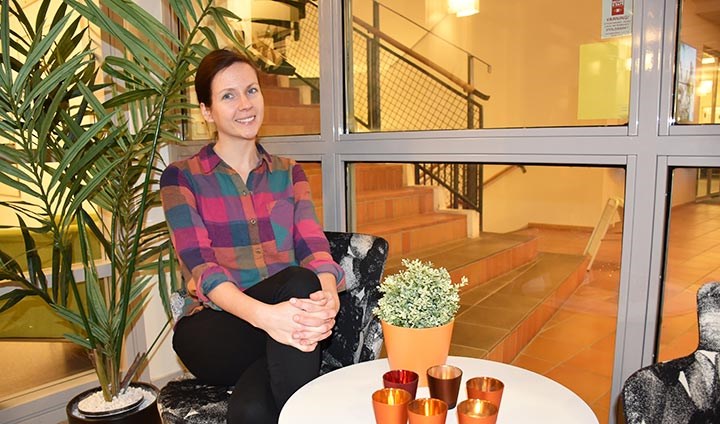Research on tolerance at Örebro reaches a broad audience

Marta Miklikowska has for the second time had an article published in The British Journal of Psychology, BJP.
Örebro researcher Marta Miklikowska has for the second time had an article published in The British Journal of Psychology. The study is about how family and friends influence young people’s attitudes towards persons of a different ethnic background, and what we can do to encourage the development of tolerance.
“It’s exciting – and prestigious – to get an article in the BJP. This also gives me the opportunity to spread my research to a broader audience, like social welfare officers, psychologists and policy makers,” says Marta Miklokowska, researcher in psychology at Örebro University.
Direct and indirect impact of attitudes and empathy
Her recently published article, “Development of anti-immigrant attitudes in adolescence: The role of parents, peers, intergroup friendships, and empathy” is a follow-up of her previous published article “Like parent, like child? Development of prejudice and tolerance towards immigrants”.
The study is about how young people’s attitudes towards immigrants develop not only due to the influence of family and friends, but also due to the influence from friends of immigrant background, and young people’s own empathy.
“I have looked at how these factors directly or indirectly influence the attitude to immigrants,” says Marta Miklikowska.
How empathy is developed
Direct impact is concerned with how youth learn tolerance or intolerance from their parents or friends, while indirect influence is a more subtle effect. Here Martha Miklikowska examines the connection between the development of empathy in youths and their attitudes to immigrants, as well as between a family’s socio-economic situation and tolerance in young people.
In her results, Marta Miklikowska has seen that parents, peers and intergroup friendships with an immigrant background, have a direct impact on young people’s attitudes, which can be partly explained by their impact on young people’s empathy.
“I’m not surprised by the results. Empathy is something we are born with in part, but we also learn through observation of various significant persons in our surroundings. It is reasonable that if parents and friends are tolerant, and young people have friends of a different ethnic background, it will affect how young people’s empathy develops. Empathy, in turn, is important for young people’s attitudes towards immigrants. The more empathic young people are, the more tolerant attitudes they have,” says Marta Miklikowska.
Intergroup friendships counteract intolerance
“The positive results in my study are that young people who have friends of other ethnic backgrounds, develop greater empathy and are more tolerant of persons with immigrant backgrounds. I saw that having intergroup friendships also could offset the impact of intolerant parents or friends."
As an extension of these results, Marta Miklikowska means that, if society wants to promote tolerance, then schools should try to create opportunities and platforms for young people to make friends with people of different ethnic backgrounds. Schools should also strive to develop young people’s empathy.
Education and economic resources
According to Marta Miklikowska, the socioeconomic situation also plays an important role in attitudes towards persons with immigrant backgrounds:
“The higher education level parents have achieved, and the greater the financial resources are in the home, then the more tolerant the family’s youngsters will be. Thus, if we want young people to develop tolerant attitudes, then we should make efforts at the community level to promote this.”
Marta Miklikowska is currently using her findings to aid in developing prevention programmes to be used in schools. The goal is to promote tolerance, and reduce or counteract prejudice against people of other ethnic backgrounds. Being able to do the same in homes, she feels is as important, even if it is more difficult.
Marta Miklikowska recently received three million SEK from the Swedish Research Council (Vetenskapsrådet) to investigate how and why prejudice occurs among young people.
Text and photo: Cathrine Gustavsson
Translation: Jerry Gray
